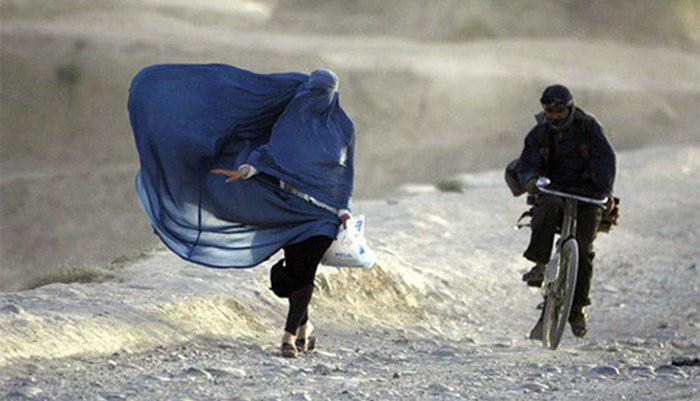In a late November evening, Shabnam walked out of her university to a nearby bookstore to buy a book. On her way back to home, she was wounded in a shooting incident: a bullet hit her left arm. She was taken to a hospital and doctors at the hospital advised her to get the bullet take out when her physical condition improves.
Shabnam Ebrahimi was born two months after the fall of the Taliban in 2002. She is the first daughter of a Kandahari family in a society where boys are seen as source of power and even safety. Shabnam’s father Sayed Jamil has taken an unusual and vigilant approach toward social relationship in a patriarchal society where his life and relationships are largely dependent on male power and properties.

Mr. Jamil has trained Shabnam to be strong, independent, and confident. According to Shabnam, her father’s decision has given her a deep sense of power and confidence: My father says you should not suffer from the same things as he did.
When Shabnam was injured in the shooting incident, her father’s determination to support Shabnam pursue her higher education faded. He requested Shabnam to give up her dreams of going to university, but, Shabnam did not accept it.
Highly ambitious and confident, Shabnam follows her dreams to graduate from the Law and Political Science of Kandahar University and become a political activist to support and represent women in Kandahar. “I want to become representative of women in Kandahar. The women of this city need supporters and leading people who can support and open up the space for their rights.”
“I want to become representative of women in Kandahar. The women of this city need supporters and leading people who can support and open up the space for their rights.”
Conservative and deeply tribal, Kandahar is a city where girls can hardly graduate from schools. Child marriage is a common phenomenon among most families in Kandahar. Shabnam’s decision to continue her education is an unusual matter which has attracted attention among her relatives. They encourage Shabnam’s family to stop her from going to university.
Shabnam was one of the many young participants of People’s Dialogue for Peace Prospect, a program initiated by the US Peace Institute in Kandahar city.
Kandahar is a province which has served as stronghold of the Taliban movement. In mid 90s a group of madrasa students sprang up in the city and claimed to bring social changes and implement Islamic sharia on fellow Muslim brothers and sisters.
Though a large number of Kandahari population enjoy lavish lifestyle, girls’ education is still something uncommon in the city. Shabnam goes to university every day wearing Burqa. She feels uncomfortable wearing Burqa but it is the only protection for young women in a city where women are bound to obey tribal customs.
Burqa helps Shabnam to conceal her identity in a society where most people do not like girls’ education.
For Shabnam education is a key that opens door to her future journey.
Once on her way back to home from university, Shabnam along with her younger sister were chased and attacked by two armed men riding a motorbike. They tried to steal Shabnam’s purse, but she resisted and screamed. The armed attackers escaped after facing resistance.
Shabnam hopes that the end of the 40-year war in Afghanistan brings a sustainable peace and fresh opportunity for women participation in all sectors of the Afghan society.
“We don’t want a peace which places more restrictions on women and their freedom,” she says.
The decision makers on the two sides of negotiation table should protect women rights, freedoms, and their future, Shabnam said with a deep sense of apprehension.




